Our impact, their voices
Breaching boundaries: Ahmed Mohamed’s quest for career recognition and success
A young Syrian refugee with speech and hearing disabilities living in Jordan has received formal certification of his working skills through the ILO Recognition of Prior Learning Project, helping him advance in his career and life.
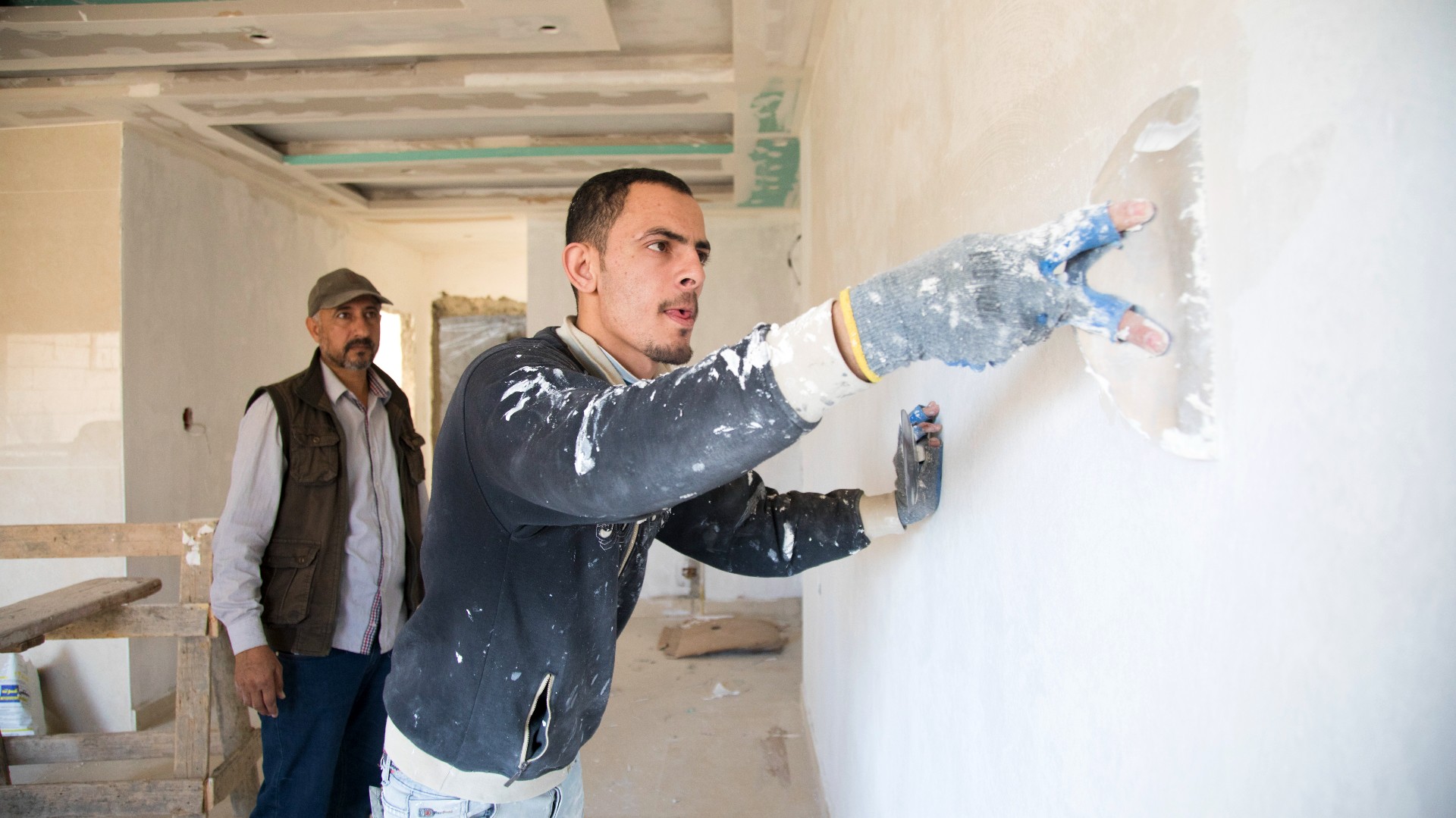
Ahmed Mohamed is a young painter and decorator from the Syrian city of Aleppo, in the country’s northwest. Today, he lives and works in Jordan with his family, where they found refuge in 2016 as the conflict was raging in their native country.
“I was born with hearing and speech disabilities,” the 22-year-old says through sign language interpreted by his father Abdel Latif and his brother Hamza in their house’s living room. “It’s been hard for me. Schools for people with disabilities were distant from our village. Attending normal classes was psychologically traumatizing, so I dropped out. I then decided to study sign language with a private tutor, while helping my family working in our farm.”
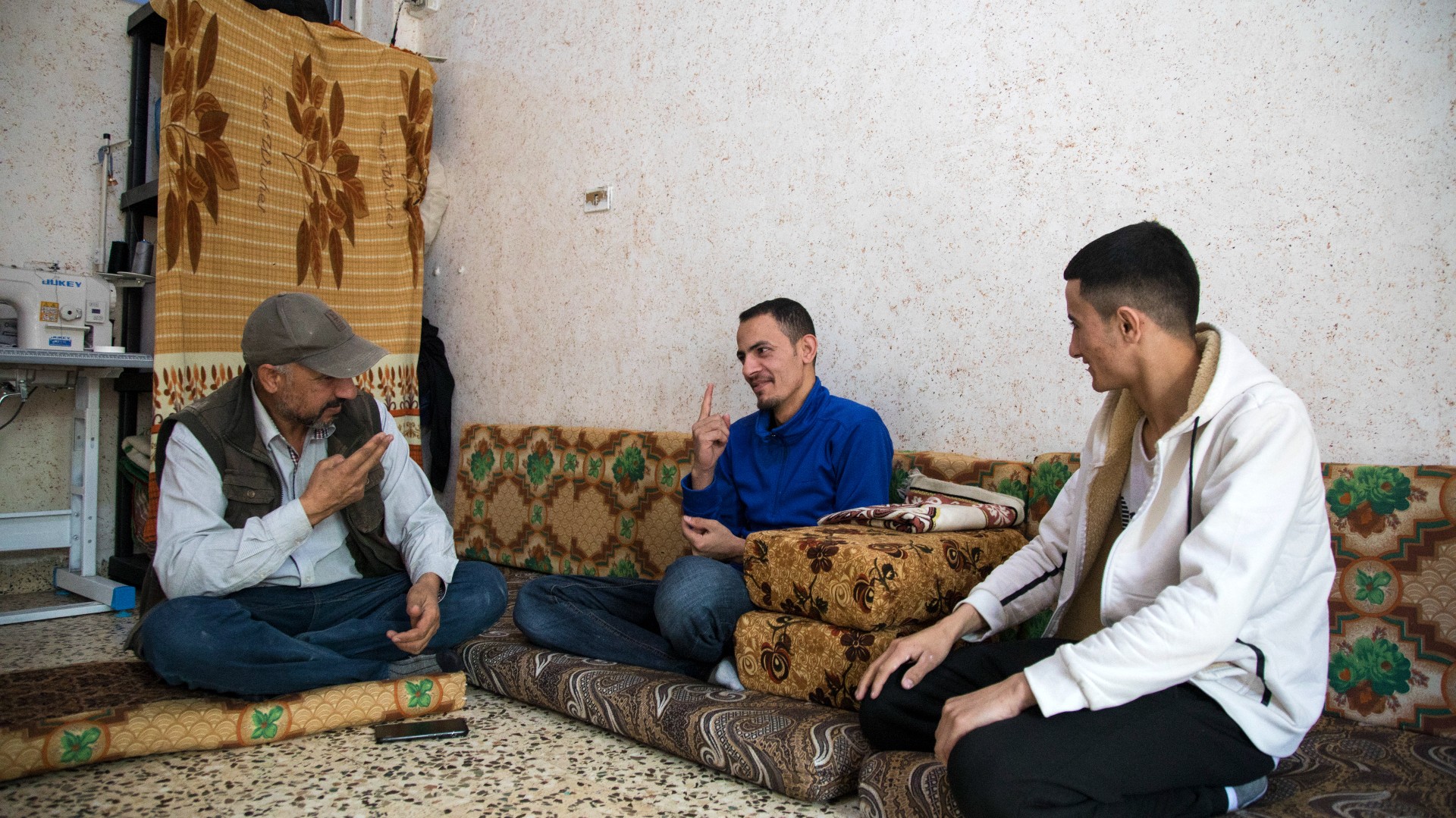
Before the war, no one in Ahmad’s family would have ever thought of leaving Syria.
“The pain of leaving our land was excruciating, but we had to leave fast, we were not safe, the level the conflict had reached at that point was simply too dangerous to allow us to stay and continue with our life,” he says.
Reaching Jordan proved to be a risky undertaking. The country’s northern border lay some 500 kilometres away, with most of the roads in Syria being closed and the entire route dotted with checkpoints. The family of sixteen had to walk incessantly at night and pause during the day, trying to avoid extreme danger, until they eventually reached and entered Jordan.
They initially stayed in the country’s Azraq camp for Syrian refugees, striving to adapt to the new situation. Ahmad’s father and Hamza decided instead to relocate to Amman, where they found jobs as painters and decorators. Meanwhile, Ahmad remained in the camp, with his frustration running high amid the idleness he was forced to live in.
“I stayed in the camp for three years, but there were no jobs there,” he says. “I tried to study in a school, but I couldn’t benefit from it either as there were no special classes for people with my kind of disabilities, so I decided to join my father and brother in Amman, and to learn from them how to become a professional painter and decorator.”
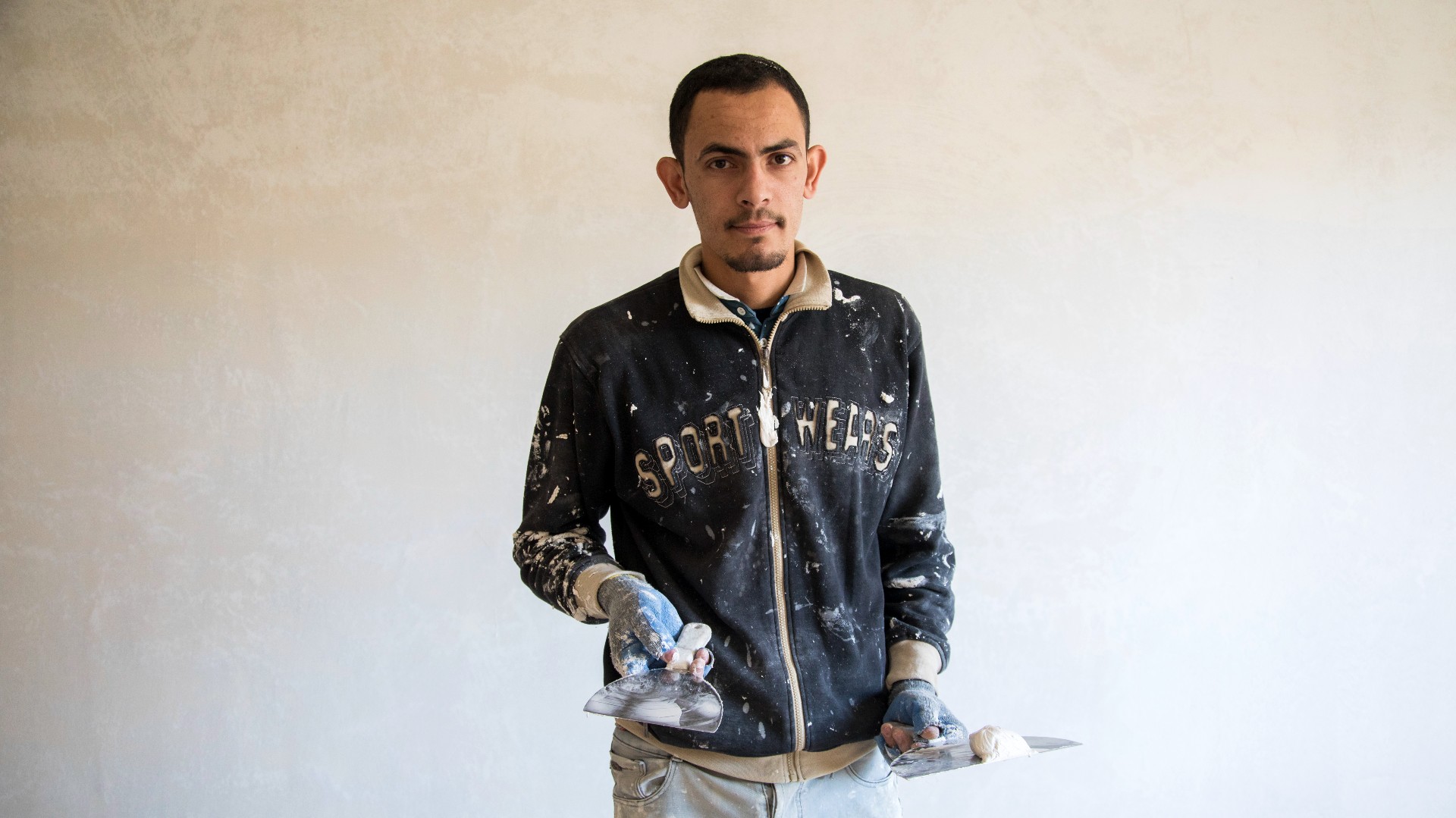
The new working life presented difficulties for Ahmad. He needed his relatives to interpret from Arabic to sign language, to enable him to understand the requirements of their clients, leading him to grow impatient and discouraged at times.
Still, he rose to the challenge and persevered.
“I am a young man with powerful motivation. My only goal at that point was to become perfect in my job, which I eventually did, working towards this goal with all my strength,” he says. “Still, I wanted more. I wanted to have my working knowledge recognized, like my brother Hamza did before me.”
A few months earlier, Hamza had earned a certificate from the Jordan Technical and Vocational Skills Development Commission (TVSDC), after joining the ILO PROSPECTS Recognition of Prior Learning (RPL) programme. Since 2021, the initiative has been supporting hundreds of Syrian and Jordanian workers in the country to access formal employment and decent work through skills development, coaching and mentoring, and final, formal certification.
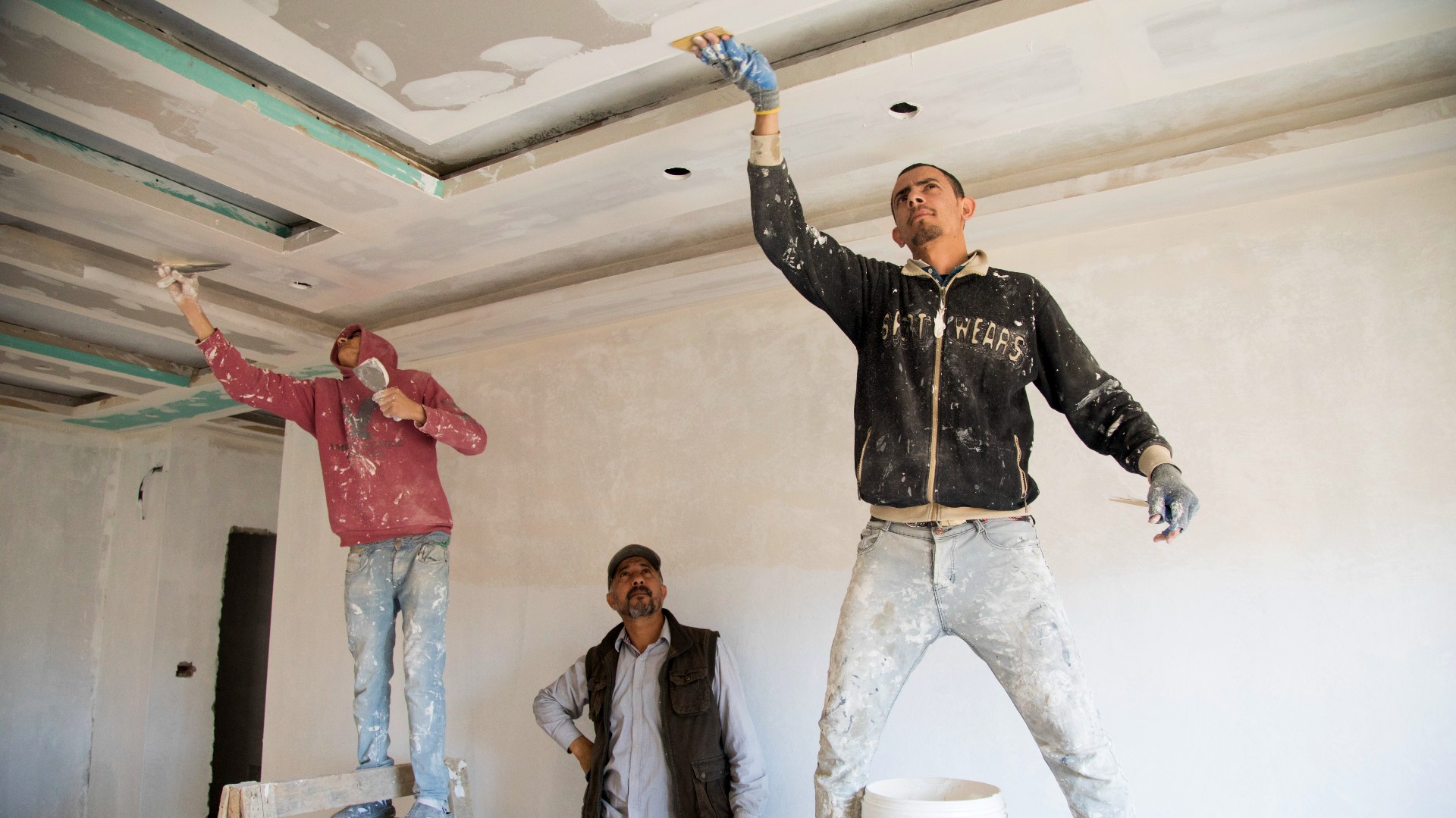
Following in the footsteps of his brother, Ahmad joined the programme. Throughout its duration, job assessors and coaches from Luminus Education—the ILO’s implementing partner in the project— would check on him and his colleagues, providing the feedback they needed to improve the quality of their work and hone their skills. Ahmad’s father and his brothers helped him communicate with the coaches during the mentoring sessions.
Workers joining the RPL programme are supported and certified in almost 30 different types of construction professions, spanning electrical work, painting and decorating, plumbing, scaffolding, and wall and floor work.
“Although I already had a solid background in my job, I learnt from the coaches’ methods and styles, and I included these techniques in how I paint and decorate today,” he says, adding he and his brothers also spent long hours watching the online tutorial lessons the coaches provided.
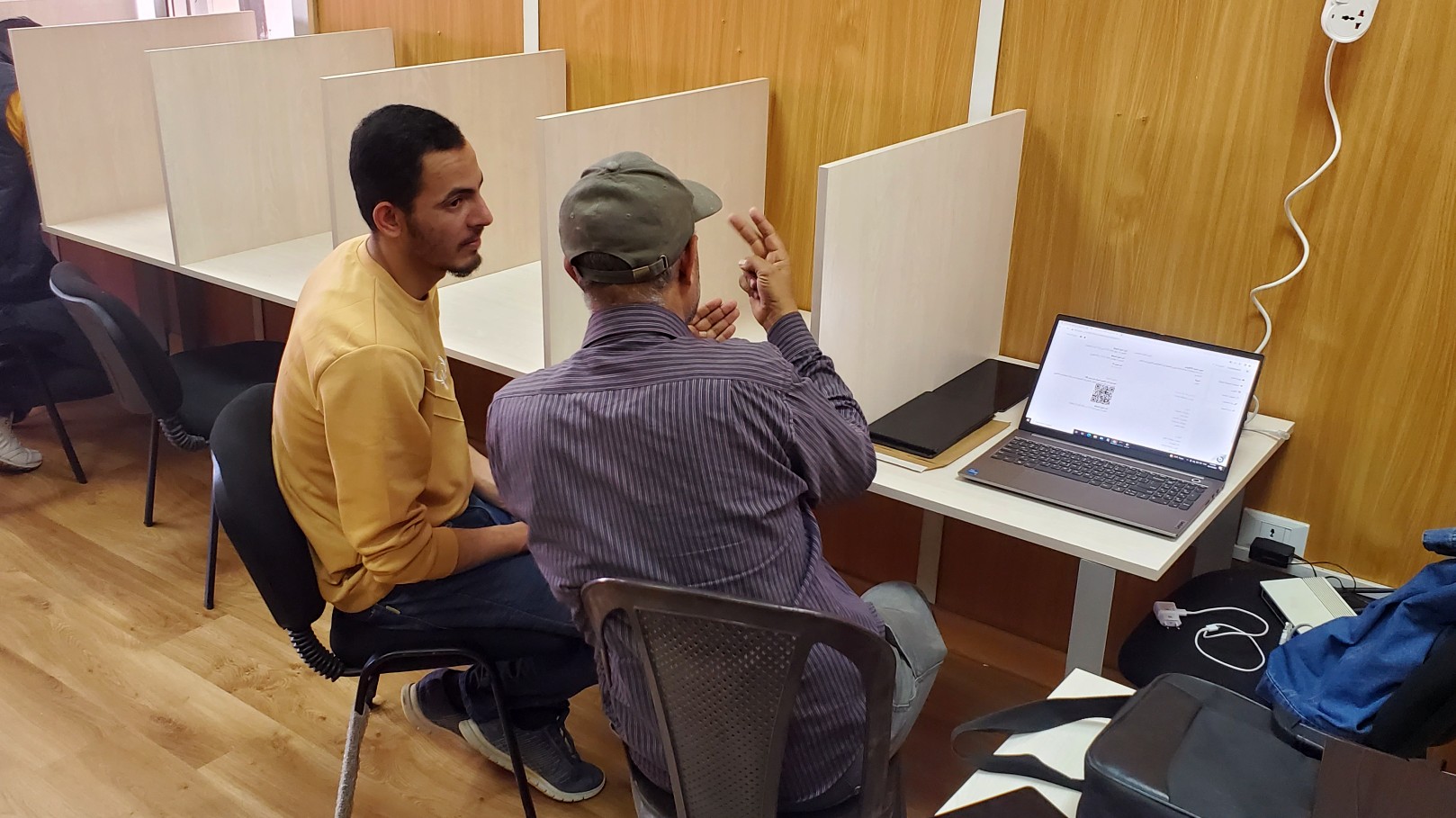
That was all well and good. Still, one last stumbling block remained. Ahmad had to pass the TVSDC final test so that his learning would be formally acknowledge. Workers in the programme receive their official occupational license only after passing this test.
“The exam was tough,” Ahmad says. “It was not easy to formulate the questions in a way that was accessible to me, but my father was sitting next to me, helping me understand what I needed to deliver. I was prepared: I knew all the types of paints, how to use them and the best safety measures relevant to the job.”
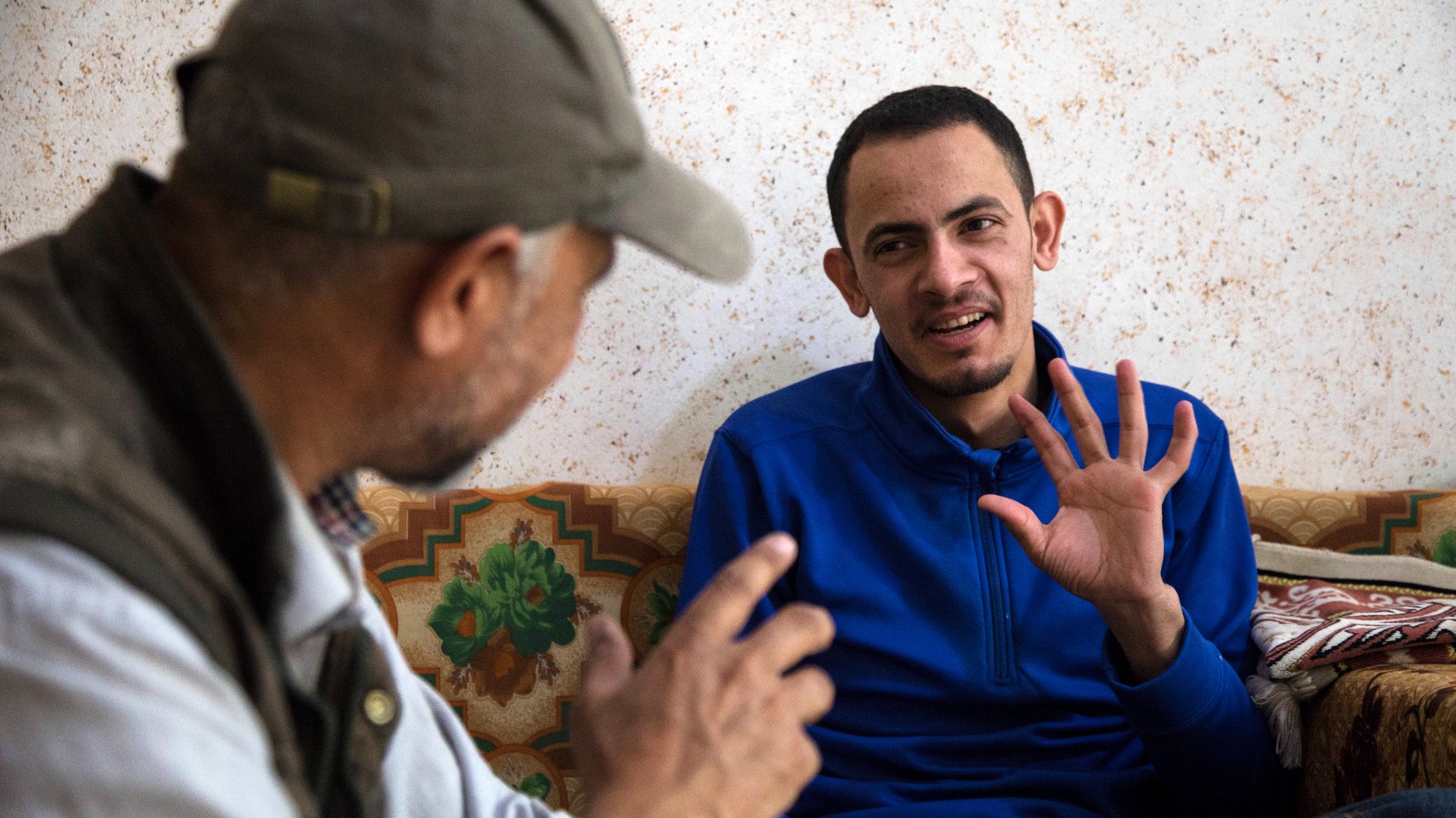
Ahmad achieved his goal. He passed the test, eventually obtaining an official certificate recognizing his knowledge and skills, allowing him to find better jobs more easily in Jordan, and transition from the informal to the formal economy.
“This certificate is now playing a big role in my career,” he says. “I need a work permit and a certificate to work in Jordan. I feel that new, unexpected doors have opened for me. But this is just the beginning. I want to further improve in and expand my job, live simply, get married, and work hard so that I will be able to build my own house one day.”
Since joining forces in 2021, ILO PROSPECTS and Luminus have enrolled over 1,000 workers in the RPL project. Almost 30 per cent of them are Syrian workers with refugee status.
RPL is key for promoting social inclusion among those who do not complete their schooling and retrenched workers, addressing skills shortages and workers’ adaptability, and fostering access to higher education and decent working conditions.
The project is funded by the PROSPECTS Programme , a global partnership supported by the Government of the Netherlands.